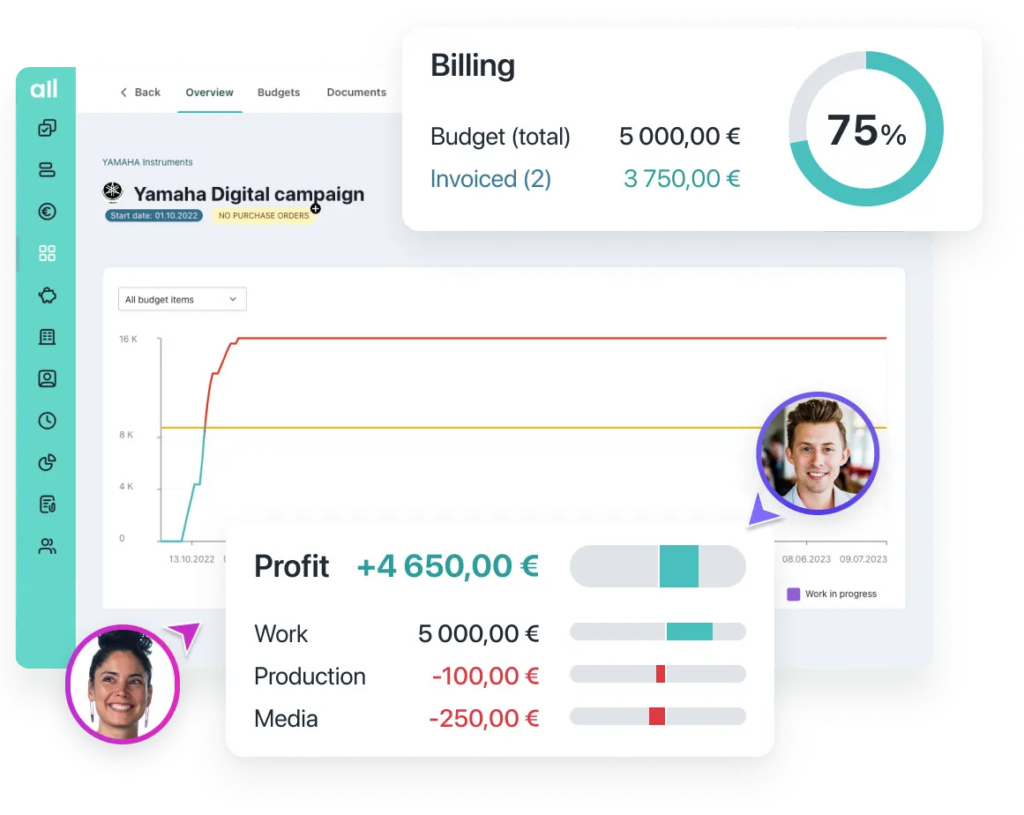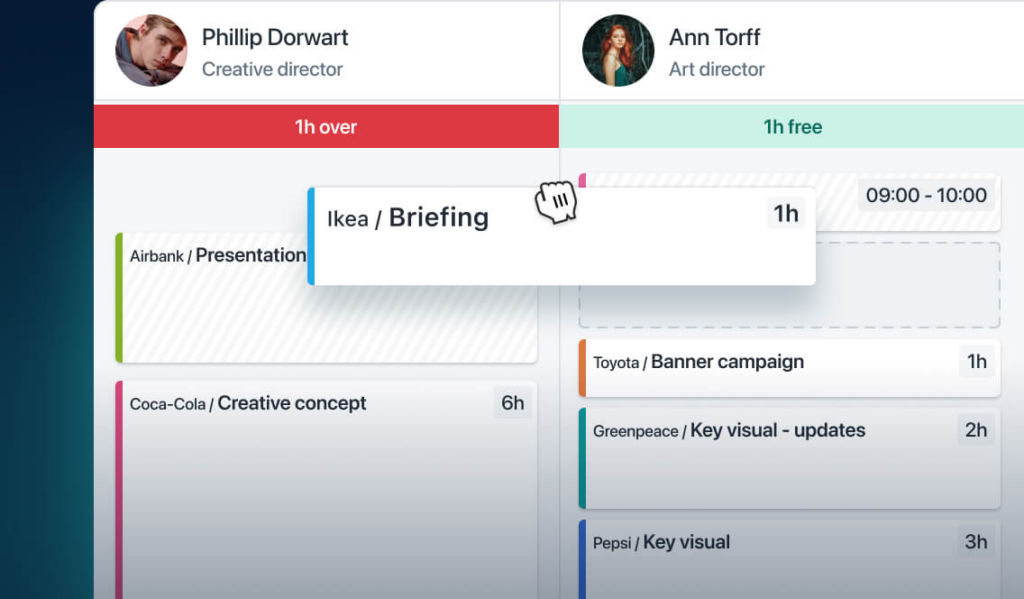Let’s face it – time tracking isn’t exactly a favorite topic in most agencies. But when it comes to agency time management, tracking how your team spends their hours – especially billable hours – is essential. Without it, agencies struggle to identify what’s profitable, optimize workflows, or even prevent burnout. Time is your most limited resource, and knowing where it goes is the only way to improve your margins, run efficient projects, and make confident decisions. Still, many agencies resist time tracking – either because they fear it creates pressure, doubt its accuracy, or rely too heavily on fixed fees. But avoiding it doesn’t solve the problem – it just hides it.
Table of Contents
Why Agencies Resist Tracking Time
Despite its clear benefits, many agencies avoid tracking time due to three common misconceptions:
1. “People just write what they want anyway.”
True, timesheets aren’t always accurate, and sometimes they’re intentionally skewed. However, even imperfect data beats guessing. Without tracking, you’re flying blind, unaware if your projects are profitable or silently bleeding your resources dry. Addressing data accuracy concerns is entirely possible with proper tools and team communication.
2. “We don’t want to pressure our team.”
Nobody enjoys feeling monitored, and the goal certainly isn’t surveillance. Effective time tracking is about clarity, not control. Tools like Allfred make it incredibly simple – often just one click – to track hours, providing valuable insights into real profitability after accounting for internal costs. Plus, tracking non-billable hours helps agencies identify hidden capacity issues before they become costly problems.
3. “Fixed fees are easier.”
Fixed fees might seem straightforward, but they can quickly erode profits if time spent isn’t accurately accounted for. Time tracking uncovers where your hours truly go, helps manage scope creep, and ensures your pricing matches reality instead of guesswork.
5 Ways Time Tracking Improves Efficiency and Project Outcomes
Time tracking isn’t just about filling out timesheets—it’s a strategic tool that helps agencies uncover inefficiencies, improve team health, and boost profits. Here are five concrete ways it supports better operations:
#1 Accurate Billing and Increased Profitability
When you track billable hours accurately, billing becomes transparent, reliable, and fair. You ensure you’re compensated appropriately for your efforts and maintain healthy profit margins.

#2 Identifying Time Wasters and Optimizing Workflows
Tracking time reveals inefficiencies in your processes. By identifying these time drains, agencies can refine their workflows, enhancing productivity and client satisfaction.
#3 Preventing Burnout of Creatives
Consistent tracking helps agencies detect when team members approach burnout, allowing managers to redistribute workloads proactively. Balanced workloads protect creativity, ensure consistent quality, and promote better long-term team health.
#4 Adjusting Pricing Based on Real Data
Time tracking reveals how much effort truly goes into delivering each type of service. This insight helps agencies revise their pricing models and hourly rates to better reflect the actual time investment, ensuring services are priced for profitability, not just guesswork.
#5 Making Smarter Hiring and Capacity Decisions
When you have clear data on where time is going, it’s easier to see if your team is overbooked or underutilized. This helps in deciding whether to hire, restructure teams, or adjust client loads, leading to better resourcing and healthier margins.
Overcoming Resistance to Time Tracking Among Creative Professionals
Creative professionals often fear tracking as restrictive. But this resistance usually stems from the tools, not the concept. The right time tracking setup doesn’t have to feel like micromanagement. In fact, when it’s done right, it helps creatives stay focused, gives them clarity on what’s expected, and protects their time from being misused.
That’s why one of the most effective ways to overcome resistance is to give creatives a tool that works for them. For agencies, that same tool turns into a source of valuable data for better decision-making, pricing, and resource planning.
The Right Tool for Creatives – and the Whole Agency
When you’re looking for a tool that creatives actually want to use—and that gives your agency the insights it needs—you don’t have to look far. Allfred brings together simplicity, clarity, and smart integrations that make time tracking and resource planning work for everyone.
One-Click Time Tracking That Works with Your Workflow
With Allfred, creatives see their planned workload ahead of time. Tasks are visually laid out, and the drag-and-drop interface makes rescheduling simple. Once they start working, all it takes is one click to track time—no need to manually select projects or fill in details, because everything is already in the system. It’s tracking without the hassle.

Visibility into Capacity and Deadlines
Allfred gives managers a real-time overview of both individual and team capacity. This makes it easier to assign work fairly and catch overloads before they happen. It also helps the entire agency stay on top of deadlines with better forecasting and workload planning.
Integrating Time Tracking with Project Management and Billing
Time tracking in Allfred doesn’t live in isolation. It’s deeply connected to project budgets, scopes, and billing. That means no double entry, no silos—just a seamless link between what’s planned, what’s done, and what gets invoiced. Agencies can finally understand not just how much time they spent, but what it’s worth.
Transforming Agency Operations with Effective Time Management
Effective time tracking isn’t about control—it’s about gaining clarity over your most valuable resource: time. When you understand where your billable hours go, you can fine-tune your pricing, optimize team capacity, and identify opportunities to boost profitability. It empowers creatives to work smarter, not harder, and gives agency leaders the confidence to make data-driven decisions.
Agencies that embrace time tracking as a core part of their agency time management strategy position themselves to scale sustainably and operate with full financial visibility. With tools like Allfred, time tracking becomes an enabler of both creative flow and commercial success.
See how Allfred can help your agency turn time into value.



